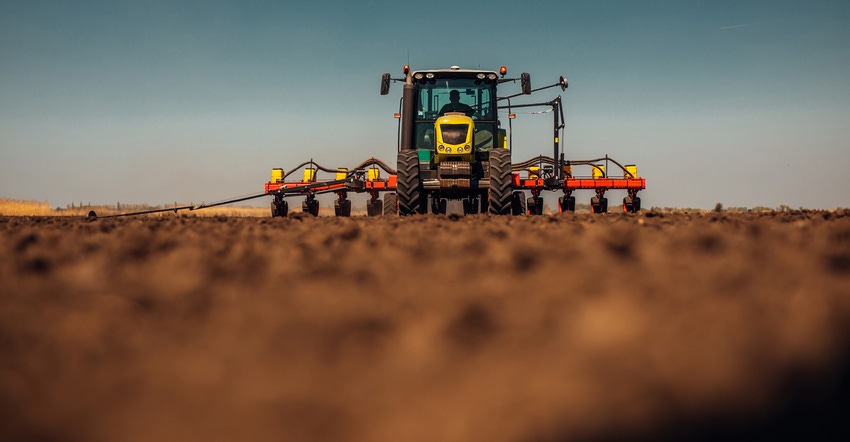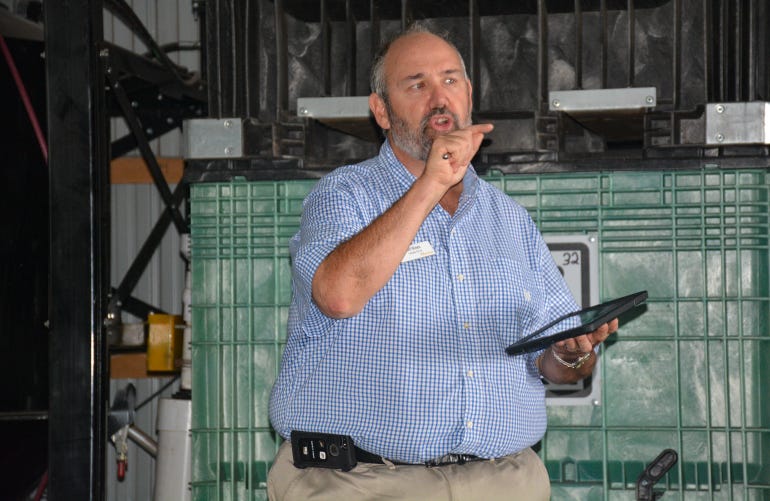
Computers picking out hybrids. Autonomous vehicles spraying Roundup. Day-by-day tracking of nitrogen in the field.
I don’t think anyone outside of agriculture truly appreciates the amount of technology that goes into farming these days. I’ve been reporting on agriculture in the Mid-Atlantic and Northeast for more than a decade and I’m still learning new things along the way.
Case in point was a recent precision agriculture meeting I attended in Elizabethtown, Pa., where Jeff Hinen, an Indiana farmer and field crop specialist for Climate FieldView, talked to local farmers about the precision ag technologies he uses on his own farm outside of Fort Wayne, Ind.
There are many companies touting precision ag technologies. Given the fact that Hinen works for Climate FieldView, I took his presentation with a grain of salt. Believe me when I say that this column isn’t an attempt to promote Climate Corp. or their parent company, Bayer, or their products.
But I’m just amazed at the amount of technology that he not only uses on his own 2000-acre farm, but how it helps him in his decision-making.
I hear Extension experts tell farmers all the time about the importance of scouting fields regularly, especially if there is an ongoing issue with a disease or pest. For Hinen, scouting comes straight to his phone or iPad.
Through satellite imagery, he’s able to track his fields through the season, seeing where the “bad spots are” through a color-coded map that tracks his plants’ vegetation.
Why is this useful? Hinen doesn’t have to walk through his fields to find the problem spots — though he still recommends farmers do that. Instead, he gets the problem spots sent to him remotely. So, if there is a spot that is drought-stressed or being affected by a disease, he can see that right on his phone.
From there, using another app, Hinen can go out to the field and take a picture of the problem area; place a “pin” using his phone to track it; write notes about it; or even text his crop adviser to get a diagnosis. It’s pretty cool stuff.
But that’s not where it ends. Climate Corp. has developed a nitrogen monitoring system that uses an algorithm (fancy word for recipe) and data on a farm to map and track nitrogen levels by zone and create prescriptions for in-season applications. Hinen says it works by taking in data on soil properties, feeding in weather data on an hourly basis and taking in past yield data.
From there, a formula is produced by field and zone to come up with an optimum nitrogen application to ensure maximum production.
Would you like the ability to match hybrids with your farm’s unique soils and growing conditions? That’s already happening in parts of the Midwest with Seed Advisor, a Climate Corp. product that I saw rolled out at the 2018 Farm Progress Show. It’s complicated, but in a nutshell, it takes a farm’s field data and matches it with a hybrid, essentially taking the guesswork out of figuring out what hybrid will work best on the farm.
 ALL-IN ON TECH: Jeff Hinen, who farms in Indiana and is a field crop specialist for Climate FieldView, has taken full advantage of precision ag technologies to improve production on his 2,000-acre farm.
ALL-IN ON TECH: Jeff Hinen, who farms in Indiana and is a field crop specialist for Climate FieldView, has taken full advantage of precision ag technologies to improve production on his 2,000-acre farm.

It’s not available in Pennsylvania or New York yet, but Hinen predicts it will available in the next couple of years.
In tests on an Illinois farm in 2017, Hinen says the “computer” beat a farmer 77% of the time by an average of 6 bushels per acre.
He also says the company is developing an app that will use artificial intelligence and facial recognition software to identify pests, weeds and other things in a field right away.
Picture a robot or some sort of autonomous vehicle going out to the field loaded with Roundup. Using AI, it can identify a problem such as waterhemp and spray for it right away.
Let’s be honest: Nothing in life is free, and it will cost money to use these products. As a farmer, you must decide for yourself whether it pays to use these technologies, and that comes down to whether it’s cutting down on input costs and if you’re seeing significantly higher yields.
The data question is another thing to consider. I asked Hinen what happens to a farmer’s data once they start using these apps. He said it gets stored in the cloud, and that the farmer is the only person who can access the data. But is it hacker proof? That’s for you to decide. But consider the recent Capital One data breach where the personal information of 106 million customers was leaked due to a breach of one of the company’s servers. I don’t want to scare anyone, but the risk of a hacker getting into a cloud server is real no matter what any company tells you.
I love technology, and I’m excited to see what’s going to roll out in the future on farms. But don’t just dive into these precision ag technologies blindly. Do your research, do the math and figure out if it works for you and your farm. If it does, have fun but keep an eye on the data.
About the Author(s)
You May Also Like






